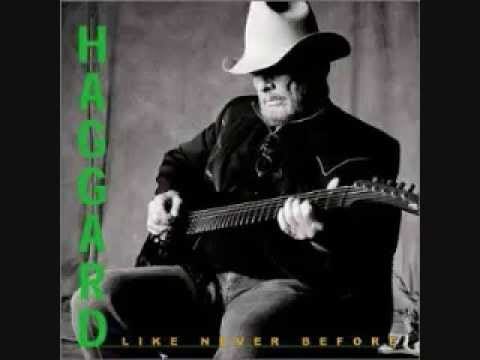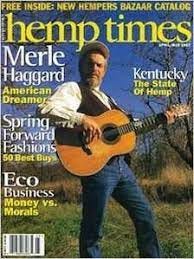Right-Wing Songs (That Are Good)
If left-wing agit-prop can lead to bad music, right agit-prop is even worse--usually.
I have nothing to say that hasn’t already been said about the trite, weak piece of right-wing Americana-fantasia “Try That in a Small Town,” a Jason Aldean recording stirring up outrage less for being trite and weak than for being a piece of right-wing Americana-fantasia. A while back I did write a short series about trite, weak left-wing Americana fantasia, whose final post is about protest songs that I actually like, and the trick turns out to be pretty unsurprising. The good stuff isn’t really agit-prop. It isn’t rousing or rallying or baldly condemnatory. The good stuff is good because it takes an idiosyncratic approach, a weird line, some angle that enables political conviction to inspire a work of art instead of yoking an art-ish production to the service of political aims.
People will disagree about which songs do and don’t do what. I gave some examples of what I like in the final post in that series.
It’s even harder to find right-wing songs that don’t totally suck, for reasons that may have to do with the falseness of conceiving of left and right as polar ends of a spectrum with a center. They’re not equivalent in that way, and something in the absence of an equivalence may help explain why there are even fewer good songs dedicated to or inspired by by right-wing impulses.
Another thing that might be worth considering here: who wants to listen to a protest song inspired by or promoting political centrism? Has there ever been such a song? How would it even go? (Parodies might include the Smothers Brothers’ “Mediocre Fred.”)
For some artists, I think a place exists where politically-connected radicalism, even absolutism, connects with the radicalism and absolutism involved in making art in the first place, the uncompromising nature of the requirements. In vernacular American song, that connection gives us the Woody Guthrie of “Vigilante Man,” say, not the Woody Guthrie of “Union Maid.” It also gives us the Merle Haggard not necessarily of “Fighting Side of Me” but of “Lonesome Day” (sorry about the ads):
(I especially like the muted but important influence here of Bob Wills and His Texas Playboys.)
Throughout Haggard’s nearly fifty-year career, with all due qualifications and yada yada, there’s just no doubt that the politics that turned up in the work connect tightly with classic American right-wing impulses, “America First” and “Make America Great Again” among them. Because Haggard was one of the greatest of the natural idiosyncrats, he could confuse rightist fans who wanted nothing but red meat; he put out songs like “Let’s Put a Woman in Charge,” but they only confuse liberal fans into thinking he’s one of them, that “Okie from Muskogee” was just some tongue-in-cheek in-joke.
That’s because liberal fans, like conservative fans, keep trying to drag artists down to their own level. Haggard was operating on another level.
I won’t embed a lot more YouTube links—statistics show that nearly none of you click on them anyway—but truly excellent Haggard, to my mind, includes:
“Are the Good Times Really Over” (1982), which might as well be a 1980 Reagan campaign song, except it ropes Nixon (good old Merle!) into a broad cultural decline, where microwaves have “a girl” no longer knowing how to cook, or even willing to. Down on greenbacks, the song is also a kooky silverbug anthem—silver, not gold, because Haggard really is also a leftist in a William Jennings Bryan mode. The elegiac first-person is the charm of the piece. The anti-elegiac variation on the final chorus goes for an agit-prop rally, not very credibly to me.
“Big City” (1982) slams “so-called Social Security” as part of the machinery that keeps a big-sky-country pilgrim soul locked in an all-work job in a dirty city. The narrator intends to “walk off my steady job today,” and I remember thinking, “Yeah, me too, damn it,” when the song was on the radio. And yet as young as I was then, as susceptible to that kind of romance, I knew the narrator’s demand that he be turned loose and set free in the middle of Montana and given all he has coming—but no retirement or Social Security!—doesn’t make a lick of sense. (The man does need a vacation.)
Workin’ Man Blues (1969). Full-on, unrelieved 1960’s Bakersfield hard-hat stuff, with “I’ll never be on welfare, that’s one place I won’t be.” Yet here, I don’t know, do we get a hint of the cash-in near-parody? This guy is supposedly working to support literally “nine kids”? Oh—”and a wife”? Sure, some people do, but it’s like Merle’s trying to top his listeners’ more likely real-world laments. He can write a song and mean it and also goof on the cliches, something not to be explained.
“America First” (2005) as a title doesn’t exactly hide the America-First light under a bushel. It’s also an anti-Iraq War song.
Given all the politician-disdain in his work—one of a number of things he shared with Guthrie—it’s interesting that when asked about Trump in 2016, Haggard told Rolling Stone Country, “He's not a politician. I don't think he understands the way things work in Washington, that's what worries me about him. I don't think he realizes he can't just tell somebody to do something and have it done, you know. I think he's dealing from a strange deck.”
The artist and the citizen aren’t always the same person. Some people don’t like that.
As with many artists, I like the less obviously political work better—”If We Make It through December” isn’t unpolitical—but as a protest artist, at his best I think Merle’s right up there with Guthrie, Buffy Sainte Marie, Jason Isbell, and Loretta Lynn at their best, to name but a few, just on the more folkie/country side of life. Maybe another time for some rich history of protest in r&b, jazz, soul, and rock and roll.
_________
Further Reading (in right-wing songs, or at least anti-liberal-consensus songs, that are good)



